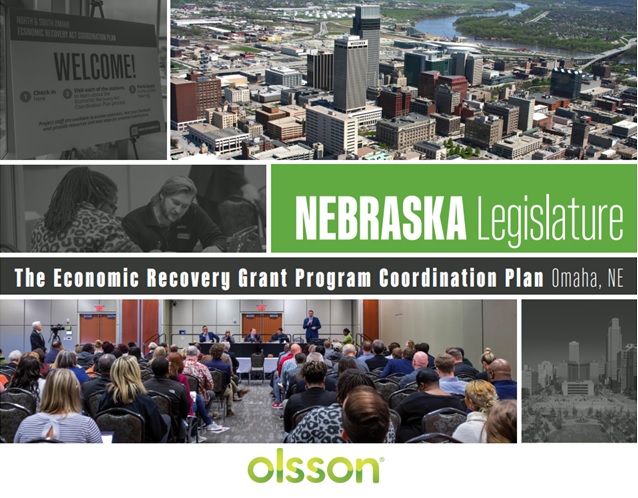NEWS
Approved: $400 Million to Fund Projects in North & South Omaha gains approval; now to Governor Pillen
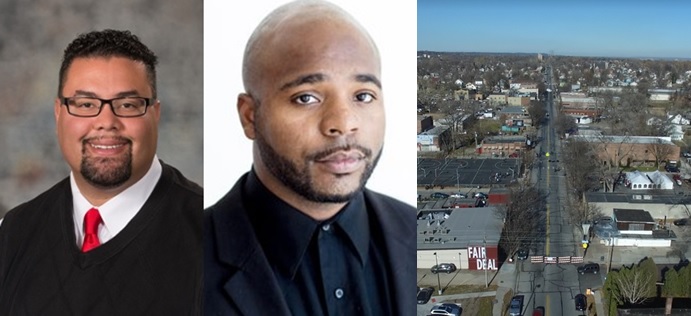
Some estimate as much as $500 million will be invested in North and South Omaha as a result of the historic and unprecedented legislation and other related bills
Published: Thursday, June 1, 2023
The bill to provide funding for North Omaha and South Omaha cleared a significant hurdle and won final approval from the Nebraska State Legislature today. The legislation once referred to as the North Omaha and South Omaha Economic Recovery plan, LB1024 in 2022 and LB531 this year won approval today on a 37-8 vote.
“We got it across this finish line,” said Senator Terrell McKinney. “I’m looking forward to the projects getting started and doing what we said we were going to do.”
Read the most up to date bill here: LB531.pdf (nebraskalegislature.gov)
It now expected to be signed into law by Governor Jim Pillen.
With support from the community and nearly 50 testifiers in 2022, State Senators Justin Wayne and McKinney introduced the legislation and worked with South Omaha senators Tony Vargas and Mike McDonnell to gain approval of $335 million in 2022.
“This is a huge win for the community,” said Willie Barney, CEO and Founder of the Empowerment Network. “Senators Wayne and McKinney have done an amazing job leading and navigating this historic legislation through the Legislature. The community also participated in the process at an unprecedented level. Now, the goal is to make sure the community, small businesses, contractors, developers and organizations help lead the development efforts.”
Senators Wayne and McKinney reviewed plans developed by the community over the years and put together the North Omaha Recovery Plan. South Omaha then developed a proposal and it was added to the original North Omaha legislation and the bill became the North and South Omaha Recovery Plan. As the plan was making its way through the state senate last year, Sen. Wayne added funding elements to include high poverty census tracts from around the state.
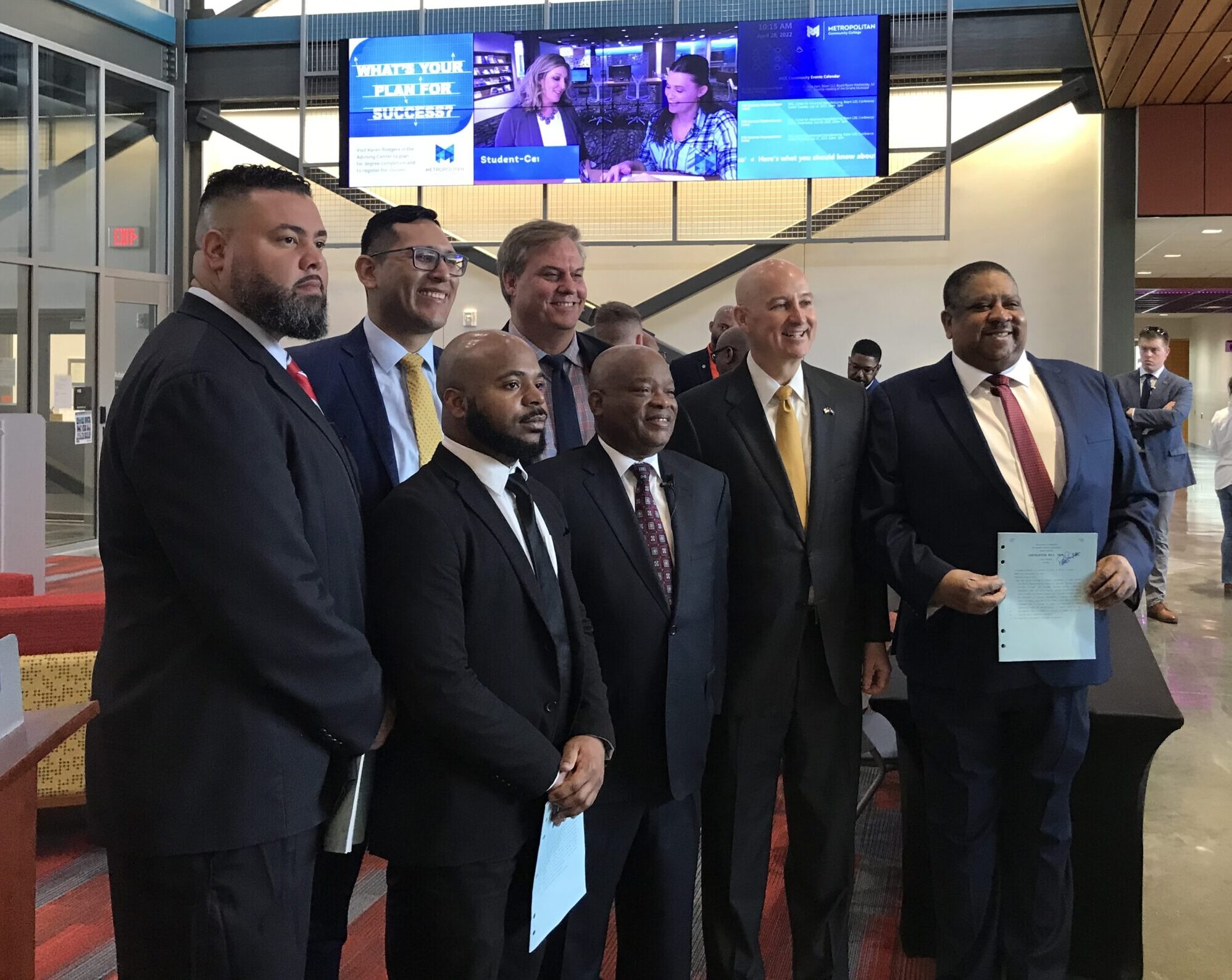
Some projects were identified in the legislation to move forward immediately through an RFP process implemented by the Department of Economic Development. Projects including internships, IHUB, the airport business park planning grant, tourism and others were approved for funding.
For the remaining $225 million, the state legislature instructed the Economic Recovery Committee to contract with an engineering firm to put together a master plan. The North and South Omaha communities were then engaged in stakeholder meetings, planning sessions and submitted over 367 applications.
Olsson, the engineering firm which was selected to collect the submissions and develop the master plan, reviewed the proposals and made recommendations to approve 37 of the plans for funding. Other projects were identified as high scoring and listed as supplemental plans that could be funded if more dollars were allocated by the State. Find the Olsson report here: https://www.nebraskalegislature.gov/pdf/reports/committee/select_special/econrec/LB1024_2023.pdf
After some concerns were voiced by the community, small group meetings and two large town halls were held to attempt to address additional high priorities that were not among the initial recommendations.
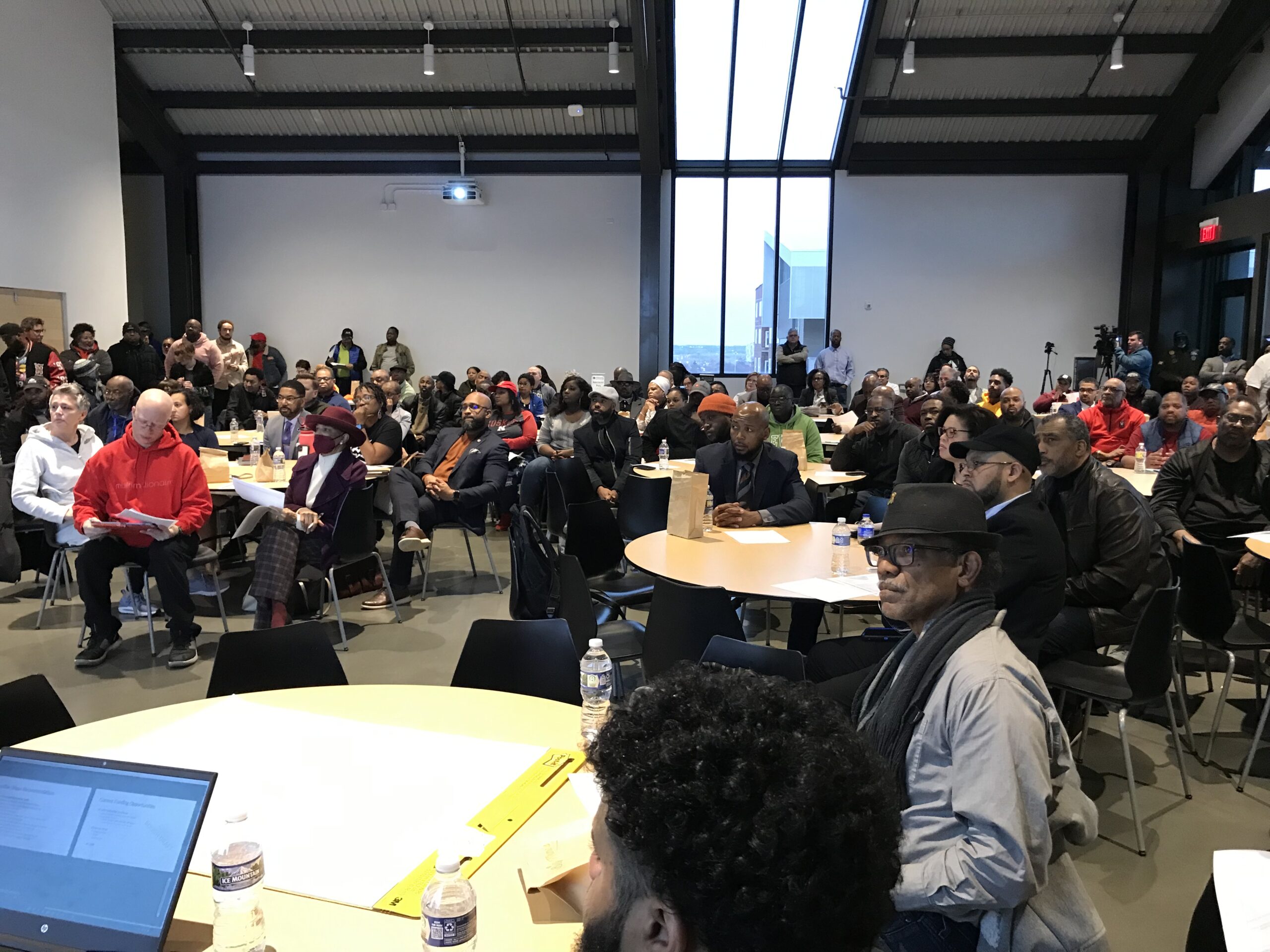
Groups and individuals representing small businesses, contractors, the Malcolm X Foundation, Charles Drew, arts and culture organizations, immigrants and refugees, and potential economic development projects along the corridors of Ames, Sorensen and 30th Street all made their case to be considered for funding. The community also recommended an additional $200 million in funding and a desire to have an accountability committee.
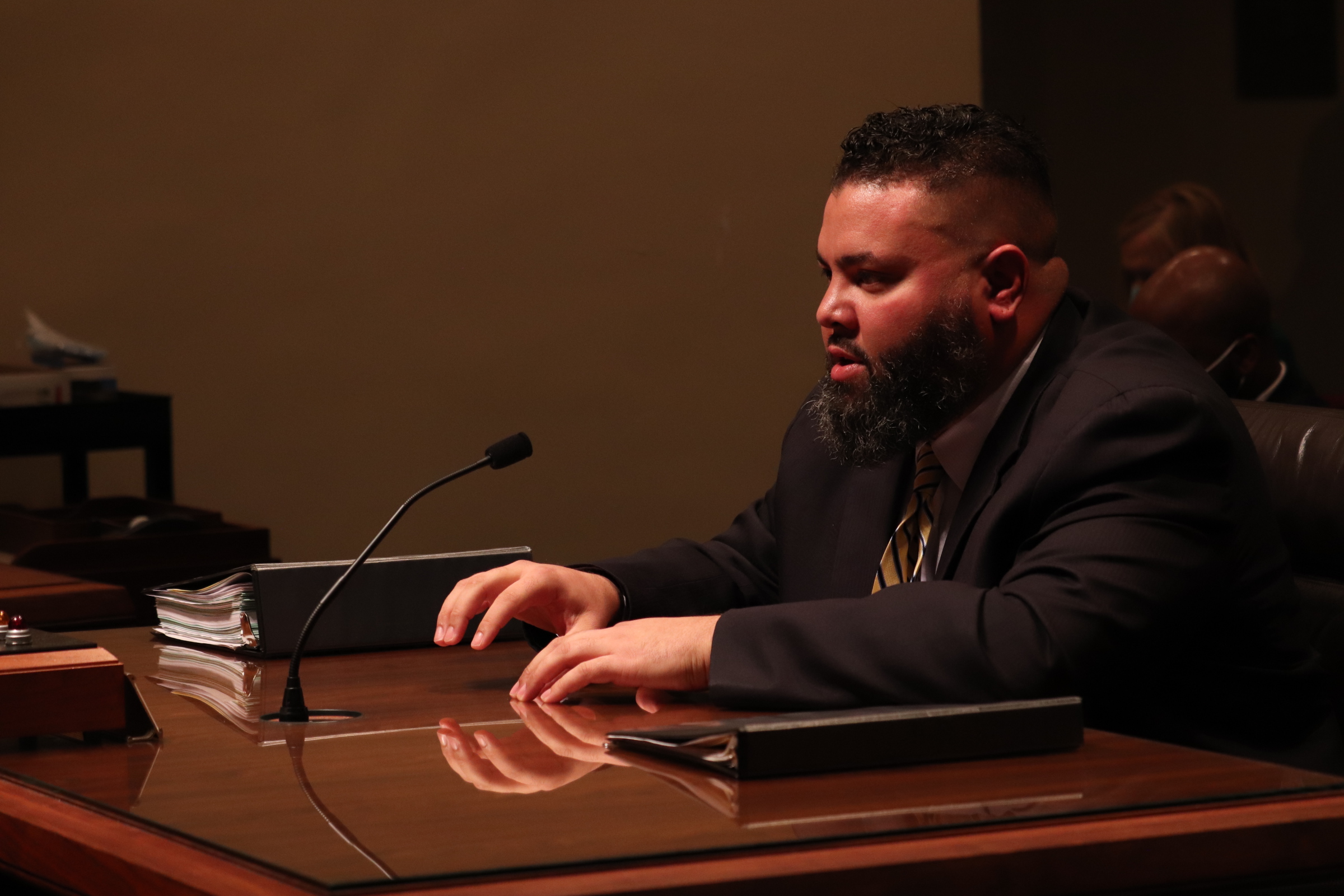
State senators agreed to take the additional amendments to the Economic Recovery committee for consideration. With that agreement, nearly 50 residents, leaders, small business owners, neighborhood representatives, organizational leaders and others traveled to Lincoln to support the legislation. Others wrote letters, sent emails and made phone calls.
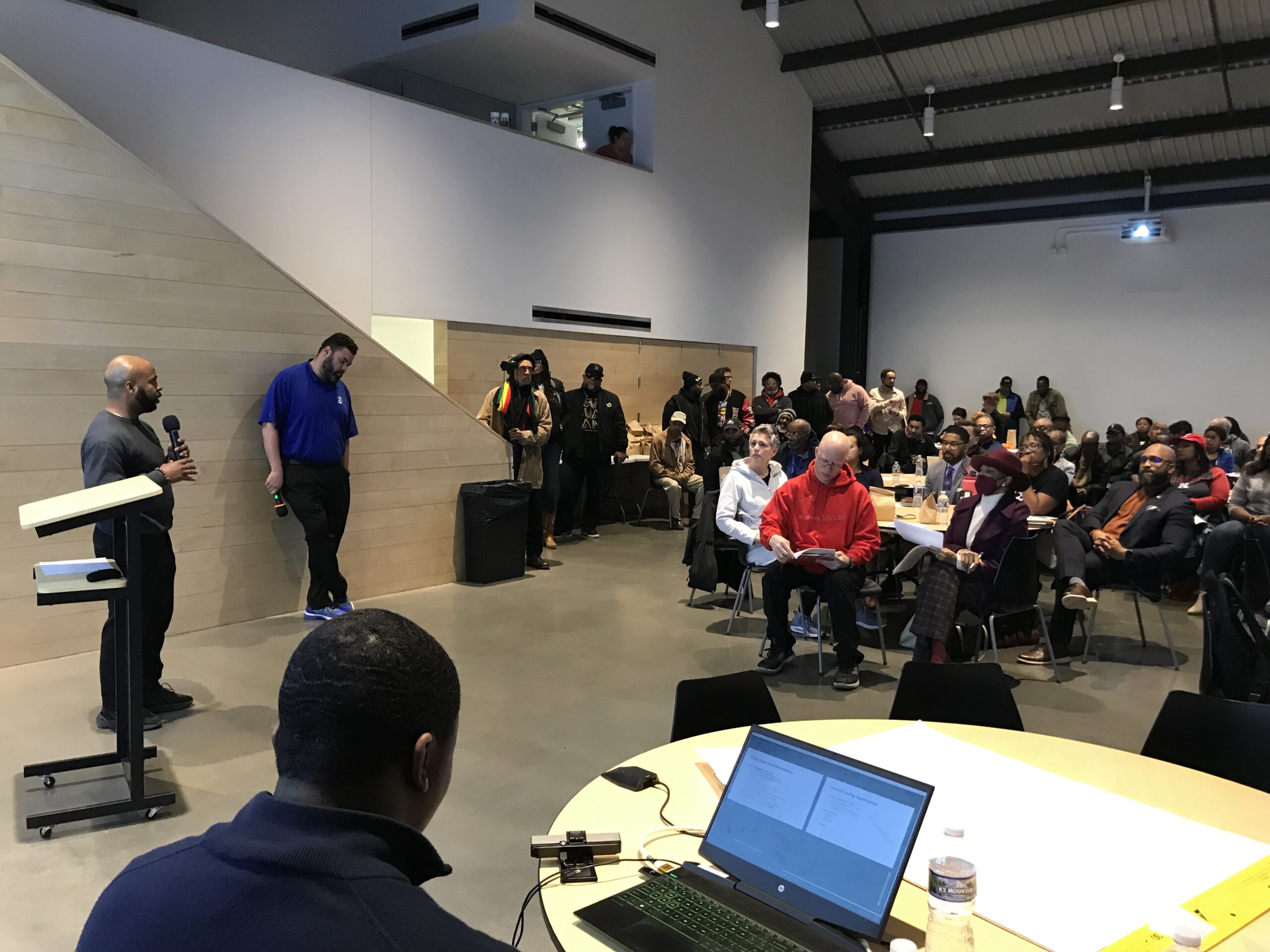
State Senator McKinney has said he shared the other suggested amendments with the committee but had difficulty gaining support with the limited time available and the filibustering that has taken place during the entire session.
Three amendments were introduced. One for a museum tied to an individual listed in the hall of fame. A second for federally qualified health centers. And, a third for a cultural museum was introduced by Senator McDonnell.
Senator McKinney said the best way for the other groups to be considered is to resubmit their proposals to the Department of Economic Development once the bill is approved in the final round and signed by Governor Pillen.
“This gives everyone another opportunity,” said McKinney.
What happens next?
The process moving forward after the legislative vote and Governor’s signature is that DED will issue RFPs and accept proposals as early as July. DED will then review and score the proposals.
State Senators are encouraging DED to use the recommendations and amendments identified in the Olsson report, but the current understanding is that DED will review and score everything again using the criteria outlined in the legislation with a heavy emphasis and focus on economic development, entrepreneurship, job creation, housing and tourism.
State senators are recommending that all proposals that were submitted to Olsson be considered eligible for funding and those recommended should receive priority.
Because of the filibustering that has occurred this session, State Senators have been combining bills into “mega bills” incorporating as many as 5-25 bills in one vote.
Even LB 531 passed with multiple amendments and bills included. In addition, the current legislation has switched funding from ARPA to general funds to allow more flexibility and more time for projects to get completed. The use of ARPA funds comes with more restrictions than general funds. And, the ARPA funds must be used by 2026.
State Senators representing the Economic Recovery Plan and Governor Pillen agreed the switch to general funds was a good move.
The legislative update regarding LB531 can be found here: http://update.legislature.ne.gov/?p=34381
The Economic Recovery program can be tracked here: https://opportunity.nebraska.gov/programs/recovery/
The funding allocated can be tracked at https://opportunity.nebraska.gov/programs/recovery/#dashboard
You may like
-
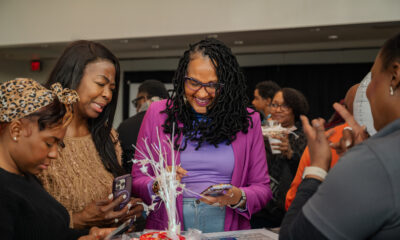

Revive Black Business Summit launches new phase of collective economic growth
-
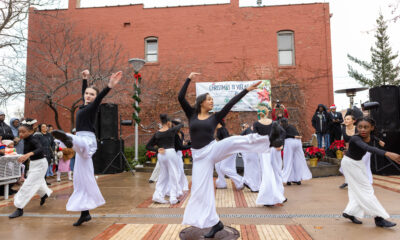

Christmas in the Village at 24th and Lake Draws Thousands to North Omaha for 15th Annual Celebration
-
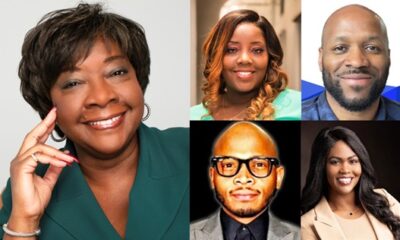

Jan. 10th…First Revive Black Business Summit for 2026
-


Experienced Community Banker, Karnetta Rushing joins the Carver Legacy Center team
-


Confirmation and Momentum: May 2025 was a historic and unprecedented time
-


Gibril Mansaray creating innovative partnerships in Sierra Leone
Community Features
Experienced Community Banker, Karnetta Rushing joins the Carver Legacy Center team

Great news for the North Omaha community and beyond.
Karnetta Rushing, a former Senior Vice President and Branch Manager from First National Bank has joined the Carver Legacy Team and will formally host open hours at the Historic 24th and Lake location.
“After three years operating mostly by appointment at the location, we are excited to have Karnetta join the team,” said Willie Barney, one of the owners of Carver. “She has an incredible knowledge of banking and she’s one of the most community-focused people I’ve ever known.”
Rushing is now available at the Carver on Tuesdays and Thursdays from noon to six pm each week. She will also continue the community days on the second Saturday and host special events and financial empowerment sessions at the Center.
Because of the joint venture between Carver and American National Bank, she will be able to assist new and existing customers with many products and services of a traditional bank.
“I’m excited and looking forward to serving this community and meeting all of their banking needs at this historic location,” said Rushing. “I have a passion to see our community thrive financially and much of that starts with a strong banking relationship. Working at Carver will allow me to help families, businesses, organizations, and ministries to accomplish their financial goals and make their visions a reality.”
A native of North Omaha, Rushing worked in the banking industry for over 20 years before retiring in 2020 to provide care for her mother. She worked in the downtown offices for First National Bank for a few years but spent most of her career at the location along Ames.
“I have thoroughly enjoyed working with customers throughout my career to make their dreams come true whether buying a home, launching or scaling a business, saving for a car or their education,” said Rushing. “To have this opportunity to do it at Carver, with people who are absolutely committed to seeing this community succeed, is amazing.”
Carver Legacy Center is a Black-owned financial center owned by Willie and Yolanda Barney and Martin and Lynnell Williams. The business contracts with American National Bank to administer their Carver Legacy Accounts allowing them to instantly have access to locations across the Omaha metro to serve customers and meet their banking needs.
However, it is more than a traditional bank, as the team is committed to investing in the community.
“Through our outstanding partnership with American National Bank, we are able to receive deposits, will be issuing our own debit card and can lend capital to businesses in our community make investments in our community,” said Barney. “We are willing to go above and beyond to help our customers and community to succeed.”
In just two years, Carver has lent over $4 million to small businesses in the North Omaha community. With Rushing on board, the team is prepared for exponential growth to have an even greater impact in the community.
“This has always been the plan,” said Lynnell Williams. “We wanted to take our time to fully develop the model and then find the right person to lead our location at 24th and Lake.”
“I’m most excited about what Karnetta will be able to do to help customers with developing plans to save their money and invest for the future.”
Carver has already invested in a number of businesses from a wide array of industries and sectors.
“Our customer base has grown consistently over the past few years,” said Martin Williams. “I am beyond excited to have Karnetta join our team. The dream is becoming even more of a reality. She will be able to really make an impact with our community.”
In addition to having the financial center at Carver Legacy Center open, the Carver Hub will also be activated.
“The original vision for Carver included the Hub, an incubator store, and the financial center. With Karnetta’s business banking experience, she is the perfect person to get the Hub going as well,” said Yolanda Barney.
“The Hub will be a place where entrepreneurs and business owners can come to get connected with information, training, and resources to launch and scale their business,” said Willie Barney. “They will also be able to meet with experts in finance, accounting, marketing, HR, and legal matters and link up with other opportunities to grow their business. Having Karnetta lead the way is a huge step forward towards the bigger vision.”
Carver Legacy Center at 24th and Lake
Open Tuesdays and Thursdays from Noon to 6 p.m.
Open every second Saturday from 9 a.m. to 2 pm
For more information:
Phone: 402-507-8441
Customers can also still conduct business at any American National Bank location and use their Carver Card locally and nationwide.
Carver Legacy Accounts are FDIC insured through American National Bank.
Community Features
Confirmation and Momentum: May 2025 was a historic and unprecedented time

On a personal and professional level, the month of May 2025 was incredibly confirming. Game changing. Unprecedented. Historic. It was a time of confirmation, transition and transformation.

I had the opportunity to present in New York at a national Black economic summit that featured Governor Wes Moore, Killer Mike – musical artist and entrepreneur, CEO’s, investors, funders, researchers, media execs and many others. The keynote presentations and points of emphasis all completely confirmed the models we have been implementing for the past 18 years and the next phase we are preparing to launch.
I then woke up at 3 am to board a flight after the two-day event to get back in time to facilitate a leadership meeting and then a separate conversation about voter turnout and mobilization. More confirmation about the expansion of the model.

My friend and one of the original members of the Empowerment Network and Omaha 360, John Ewing was elected as Mayor of Omaha. The first Black mayor elected in the city! A committed leader and man of God, who has served this community with passion and excellence for 40+ years. We have worked together for over 20+ years and the visions we discussed are becoming reality. Great things ahead.
The next day was the start of our 18th Annual Rebuilding the Village Conference with national guests from eight different cities focused on creating safe, thriving, and prosperous communities. This year was different as we redesigned and dedicated the conference to elevating deeper collaboration, rediscovering economic self-sufficiency, building wealth, pooling, and investing resources and working together toward community transformation.

One of the most significant moments was having the opportunity to facilitate a panel featuring representatives from some of the most successful Black Wall Streets in the history of this nation. A long-held vision! For years I have researched Black Wall Streets and now have the opportunity to document the keys to success. Absolute confirmation.
I was also blessed to have the opportunity to recognize JoAnna LeFlore Ejike and the Malcolm X Foundation for their work and in celebration of the 100th anniversary of Malcolm X’s birth. JoAnna shared some key information regarding why Malcolm’s dad moved to Omaha, and I have always appreciated Malcolm’s message of self-help.

We also celebrated our National Empowerment Champion, Ryana Parks Shaw, Mayor Pro Tem from Kansas City. She has led many projects and she’s an incredible champion for the Empowerment Network, KC 360 and KC United for Public Safety. She introduced and led the approval of a $30 million fund to support community-based violence prevention and intervention efforts in KC. She shows what’s possible through strong leadership skills, effective policy making and commitment to community.
A week later, my daughter graduated from high school. What an incredible blessing. My son, mother and stepfather joined us along with many members of Priscilla’s village. She had a great experience at Central and is now headed to UNL.
Then last week, after an intense 360 meeting that I’ll speak more on very soon, we loaded a bus to Tulsa’s Black Wall Street to present the collective action plan that I have facilitated with the engagement of 250+ Black leaders and change makers we’ve convened collectively with a planning team. It is already producing fruit.

In addition, we took 25 Omaha entrepreneurs, community builders and national strategic partners to Tulsa this past week. I had the opportunity to introduce the comprehensive model that I have been developing, piloting, and evolving for nearly 35 years. The response to the models and framework has been overwhelmingly positive.
While in Tulsa, we launched the next phase of the Revive Black Business Network and Empowerment Network. We focused intensely on relationship development, business connections and exchanges, fund development and access to capital, housing and development, history and cultural tourism, and education and youth development. We had the strongest feedback of any session we have facilitated. Let me just say some strategic business relationships were established and expanded.
History was made again. We met with Mayor Monroe Nichols in Tulsa, Oklahoma home of Greenwood’s Black Wall Street on our Rebuild and Transform Tour. The first Black Mayor of Tulsa. He was also part of our State of Black Tulsa Summit.

104 years after the massacre with two survivors in the audience. He announced the establishment of the Greenwood Trust which will include an initial $105 million to help begin to address home ownership, business loans and other economic development initiatives to further reinvest in rebuilding Greenwood!
As he met with us on Friday, May 31st, he sees the Tulsa Empowerment Network as a key partner on the journey. Congratulations to all of our friends and partners in Tulsa. Thankful to be a part of this next phase.
It was truly a transformational month. I finally feel free to speak more openly about the bigger picture and I am incredibly encouraged by the confirmation coming from thousands of participants, partners, and supporters from across the country and even internationally.
I am now preparing to release some significant pieces including an article I have been working on and updating for five years. The article will be an introduction to some upcoming books. Thank you, Jesus!
Momentum is building and accelerating. Grateful to so many supporters and partners in Omaha and across the country. Walking in faith. Walking in purpose.
Get engaged. Stay engaged! Let’s build together.
Community Features
95% increase in the number of Black-owned businesses with employees in Omaha

A recent story by the Brookings Institution highlights a 95% increase in the number of Black-owned businesses with employees in the Omaha metro.
The Brookings reports leads with the statement that Black-owned businesses are driving economic growth in America.
The report uses data from the Census Bureau’s Annual Business Survey showing an increase of 182 Black-owned businesses with employees in Omaha from 2017 to 2022.
That is great news for the organizations and businesses working to increase the number and size of Black-owned businesses.

“This is incredible. A 95% surge in Black-owned businesses with employees in Omaha is more than a statistic—it’s a testament to resilience, innovation, and economic empowerment,” said Frank Hayes, CEO and Founder of Hayes & Associates. “This growth fuels generational wealth, strengthens communities, and drives the local economy forward. When Black businesses thrive, Omaha thrives!”
The Brookings report shows that minority businesses are driving economic growth in the entire country.
Some neighboring cities in the Midwest and partner cities also performed very well when it comes to increasing the number of Black owned businesses.
“We set a goal in 2015 to work together to help create or scale 250 more Black-owned businesses with employees by 2025,” said Willie Barney, CEO of the Empowerment Network and co-owner of the Revive Black Business Network and Carver Legacy Center. “We’ve partnered with many organizations to host expos, markets, workshops, networking events and assist with raising capital and securing investments.”
“Even with the pandemic, we have collectively made substantial and measurable progress. This proves what can be accomplished in just five years and we want to help create or scale 250 more businesses before 2030.”
Locally, there are many support organizations and the entrepreneurs working to make things happen in Omaha:
- Nebraska Enterprise Fund
- Grow Nebraska
- Omaha 100
- Start Center
- Omaha Economic Development Corporation
- Revive Black Business Network
- Empowerment Network
- Carver Legacy Center
- Metro Omaha Women’s Business Center
- Hayes & Associates
- Business Seals
- Small Business Administration
- DreamBusiness
- Greater Omaha Chamber
- Urban League of Nebraska
- Midlands African-Chamber
- and others are focused on entrepreneurship and business growth.

“When we invest in small businesses, we invest in the heartbeat of our communities. These businesses don’t just provide services, they create jobs, generate local spending, and fuel economic growth. By empowering entrepreneurs in low to moderate-income communities, we build ecosystems of opportunity where every dollar earned circulates locally, strengthening neighborhoods and paving the way for generational prosperity,” said Veta Jeffery, CEO of Jeffery Consulting.
“These achievements are encouraging and proof that the focus on building an entrepreneurial economy-system is vital to building vibrant communities,” said Jim Reiff, Executive Director of Nebraska Enterprise Fund. “While a confirmation of our collective efforts, I see this as a call to action for the next five years and beyond. Each small business that expands or successfully starts improves all of the community.”
MOVING FORWARD
“The timing is perfect for this report as we turn our attention to Transformation 2030,” said Barney. “This should be a celebration point for Omaha and other cities and also inspire us all to push even harder after seeing what is possible.”
Investments through the North and South Omaha Recovery Program and other sources should help accelerate the pace of growth even more in Omaha over the next five years.

The additional funding is made possible through the partnership of the community and leadership of Senators Justin Wayne and Terrell McKinney to gain passage of LB1024 and LB531.
After a nearly unanimous vote in the Nebraska State Legislature and the signatures of former Governor Pete Ricketts and current Governor Jim Pillen, the legislation became law.
Awards were announced in January 2024 and The Department of Economic Development has led the allocation of funding and many Black-owned businesses benefitted from grants ranging from $50,000 to $2,000,000.
The future $30 million investment in the IHUB and $90 million business park in North Omaha will also make an impact.
These funds and other strategic investments will support the continued progress and help to increase the number of Black-owned businesses with employees. It also has an impact on future generations.
“When young people grow up seeing businesses start and thrive around them, they begin to dream bigger, knowing they, too, can build and contribute. This cycle of inspiration and opportunity fuels long-term economic resilience, ensuring that thriving businesses lead to thriving communities for generations to come,” said Jeffery.
Read the full Brookings report here: Driving prosperity: How Black-owned businesses fueled recent economic growth
For a listing of Black-owned businesses in Omaha. Revive Black Business Guide – Revive! Omaha
___________________________________________________________________
More Details by Sector:
Analysis by Raheem Sanders, CEO of PPRP Innovations.
The growth in Black-owned businesses has not been confined to a single industry – it has been spread across multiple sectors of Omaha’s economy, with every major industry seeing increases. A U.S. Census Business analysis noted that from 2017 to 2019, the number of Black-owned firms grew in all sectors of the U.S. economy, and this broad-based growth has been reflected in Omaha as well.
Growth by Sector:
- Health Care & Social Assistance has been the #1 industry for Black-owned businesses in Omaha by total count of firms. In 2022, there were about 75 Black-owned health care/social assistance firms with employees, making up roughly 20% of all Black-owned employer businesses in Omaha. This sector saw about +56% growth from ~48 firms in 2017 to 75 in 2022. Nationwide, health care is also the top industry for Black business owners (49,872 such firms in 2022) (4).
- Professional & Technical Services and Construction each account for ~10–12% of Omaha’s Black-owned firms. By 2022, there were roughly 45 Black-owned professional service firms and 37 construction companies in Omaha – both nearly doubling since 2015.
- Other Services (personal services, nonprofits, etc.) nearly doubled to 30 by 2022.
- Transportation & Warehousing saw explosive growth from about 12 to 37 firms (~200% increase). Nationally, transportation/warehousing was the fastest-growing sector for Black owned businesses (nearly +150% from 2017–2022) (4).
- Administrative & Support Services also doubled (from ~15 to 30).
- Retail Trade and Accommodation/Food Services each expanded significantly (~100% growth).
- Real Estate doubled from ~6 to 15 (≈+150%), mirroring a national real estate surge (~102% growth) (4).
- Finance & Insurance remains the smallest category (growing from ~2–3 to ~4).
(Data Sources: Estimates for 2015–2017 are based on available Census percentages (1) and Omaha’s share of statewide data. Actual 2022 figures from Census/Brookings Institution (3)(4). 2025 is a projection assuming continued growth. All figures rounded.)

